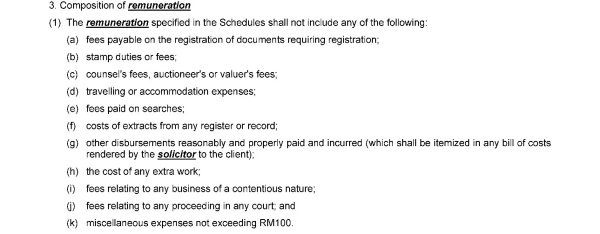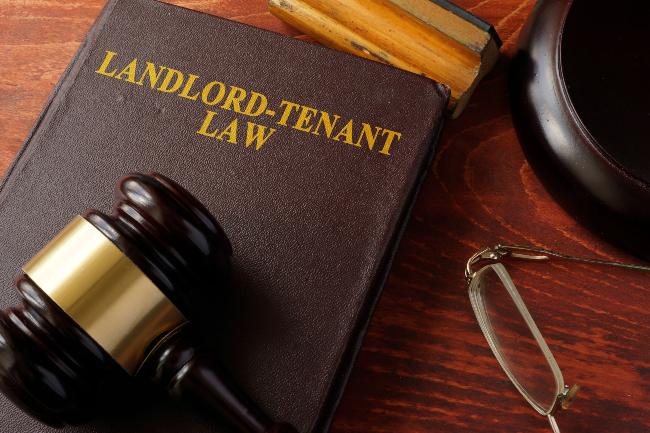Find out what clauses like parties to the agreement, agreement to sell and buy, consideration, and restrictive covenants (among others) mean and why they're so important!
Editor's note: For ease of reading, we shall be using the terms 'Buyer' and 'Seller' in place of 'Purchaser' and 'Vendor' throughout this article!
The Sale and Purchase Agreement (also known as 'SPA' or 'S&P') is a legally binding, written contract which contains the relevant terms and conditions of a transaction.
In buying residential properties directly from developers, the terms and conditions of the SPA are legally defined under the Housing Development (Control and Licensing) Regulations 1989.
Depending on the type of housing accommodation, the Developer and the Buyer will use either one of the SPAs as prescribed under Schedules G, H, I, or J of the same Regulations.
However, in this article, we're going to focus on SPAs for subsale properties (properties not bought directly from a Developer, a.k.a. secondary market properties). These are not strictly bound by the law.
In these, the terms and conditions must be mutually agreed between the Seller and the Buyer (on a willing buyer-willing seller basis).
What Are Some Of The Important Clauses To Take Note Of?
The parties would be bound by the terms and conditions of the SPA that they've signed, so here are just some of the more common ones you need to pay attention to:
1) Parties to the agreement
This refers to those who signed the SPA, i.e. the Seller and the Buyer. The Seller, being the party that sells the property, has to own the property or has the legal authority to deal with the property.
Whereas the Buyer, being the party that purchases that property, has to pay the purchase price that has been agreed upon.

2) Agreement to sell and buy
Simply put, this states that the Seller is willing to sell, and the Buyer is willing to buy! The parties may also sign pre-contract documents, such as a Letter of Offer/Offer to Purchase or Booking Form.
Here, the Buyer would normally pay an earnest deposit to express his/her interest in buying, before they proceed to draw up and carry out a SPA.
3) Consideration
The term 'consideration' refers to something of value that's given to someone else, in exchange for goods, services, or some other promise.
In a conveyancing transaction, the Seller would transfer his/her home ownership (property is the consideration by the Seller) to the Buyer in exchange for money (payment is the consideration by the Buyer).
4) Restrictive covenants

Commonly referred to as “Restriction in Interest”, these are the limitations imposed by a State Authority on the Seller, before he/she can do anything with his/her property. These restrictions are expressly stated on the property's title.
For example: “Tanah ini tidak boleh diberi, dipindahmilik, dipajak atau digadai tanpa persetujuan pihak Berkuasa Negeri.”
5) Warranties and indemnities
A warranty is usually defined as a contractual statement of assurance that's given by the Seller to the Buyer.
On the other hand, an indemnity is an agreement by the Seller to pay the Buyer IF there are any damages or loss that the Buyer may suffer (in case a particular negative event takes place).
6) Conditions precedent
This is a clause that suspends the SPA, until certain specific events have happened/taken place.
Essentially, these are conditions which must be followed through or carried out, before the SPA can be effective. For example:
When there's a restriction of interest on the property's title which needs the consent (permission) of the State Authority, the Seller must first obtain that, before he/she can proceed with the sale. Without obtaining the necessary consent (permission), the Buyer is not obligated to continue to perform his/her contractual obligations, such as to pay for the purchase price.
7) Completion
Completion is the point at which the property changes hands. This is the transfer of ownership of the property to the Buyer, and the payment of any unpaid balance of the purchase price to the Seller.
8) Post-completion
It refers to the period of time after the date of completion. After the completion of the SPA, the Buyer will be reminded to notify the local council/authority and the utilities suppliers/services providers that the property is now under a new owner!
What Are The Other Important Clauses That Many May Overlook?
When it comes to the SPA, there are plenty of important things to take note of, such as the amount of earnest payment that the buyer must submit as deposit, as well as the list of items that are/aren't included in the sale.
However, did you know that there are three terms and conditions that may be ignored, but they end up being key elements later on when a dispute arises?
1) Extension Of The Completion Period/Extended Completion Period
Commonly, the period of time for completion of a transaction is usually three months from the date of the SPA, where the following will take place:
- The Seller is expected to receive the full purchase price from the Buyer.
- Vacant possession of the property would be delivered to the Buyer.
In the event that the full purchase price is not paid within the three months, an extension of one month (subject to a certain percentage of interest) is normally given for the Buyer to pay the balance of the money.
However, there may be situations where the time frame can be extended, without incurring any interest. Examples include:
- Failure by the Seller to deliver the property's title, together with all the relevant documents for registration, within the prescribed time frame.
- In the event that the Land Registry delays in completing the transaction, and it's not the fault of the Seller and/or Buyer, the Completion Period shall be extended (free of interest!) in favour of the Buyer.
- If the transfer of property is further delayed by the Seller (except if it's already stated in the SPA), the Buyer shall be entitled to withhold payment of the Balance Purchase Price. The Completion Period or the Extended Completion Period shall be automatically extended, free of interest, until the Seller has settled the delay at his/her own cost and expense.
2) Termination Clause/Non-Completion Clause
Due to an unforeseen change of circumstances, it's possible that one party may choose to breach the agreement, or wish to end the SPA from their end.
When the contract is broken, and there's no termination/non-completion clause that allows it, the party suffering from the breach would be entitled to exercise his/her rights under the SPA.
The party suffering from the breach will also be allowed to take legal action against the other party in Court.
In order to come to a satisfactory conclusion, the Court would be bound by what's written in the SPA, and must look to the plain meaning of these termination clauses.
It's therefore important to clearly state and include clauses to regulate any terminations in the SPA, in order to safeguard the interests of both parties!
3) Delivery of Vacant Possession
This refers to the very moment the property is handed over to the Buyer. However, there are also several possible scenarios where the Buyer is unable to enjoy or use the property after receiving the keys from the Seller. Some examples include:
- The property is subjected to an existing tenancy, and there are currently occupants in the property.
- There are squatters residing in the property.
- A high volume of rubbish remain in the property.
To prevent this from happening, the SPA should state when and how the Buyer should receive vacant possession of the property.
In addition, should the Seller fail to deliver vacant possession within the stated time frame, the consequences should also be inserted into the SPA.
The Buyer may also request for a joint inspection, to allow him/her to check the state and condition of the property with the Seller, before accepting delivery of vacant possession.
How Much Should I Pay My Lawyer To Draft The SPA For Me?
So, your lawyer has tirelessly worked to craft a SPA that's as complete and secure as possible, allowing you to enjoy complete peace of mind.
When the transaction has been successfully completed (and without any hiccups!), the amount of your payment to him/her would be according to the First Schedule of Solicitors' Remuneration Order 1991:
You'd also need to take note of Order 3 of the Solicitors' Remuneration Order 1991, which lays out the additional items to be paid for, that aren't included in the schedule above:
Who Is Responsible For Paying For The SPA's Cost?
To avoid any conflict of interest, a lawyer shall act only for the Seller OR the Buyer in preparing a SPA.
As such, the payment for preparing the SPA shall be paid solely by the party who's asked for that legal representation.
If both the Seller and the Buyer choose to engage their own lawyer, both parties shall bear their own respective legal costs. Sounds fair enough!
What Happens If You Run Into A Legal Complication?
As with everything in life, there'll be ups and downs which you'd need to face, some of which can come up very unexpectedly.
This is why we're about to take a look at three sample (problematic!) scenarios that involve the S&P, so that you'd have an idea of what to do if something similar happened.
1) I’ve just purchased a property and the S&P was signed. However, a month later, I lose my job. I would like to sell off my property, but how (since I heard that the S&P cannot be cancelled)?
First, determine whether the S&P has been completed. If the entire process between the Seller and Buyer is done, which means the ownership of the property has been transferred, the Buyer can exercise his power as a new owner to sell off the property.
On the other hand, assuming that the S&P has not been completed, and that the purchase price has not been paid in full, the Buyer can choose not to proceed with the deal.
However, this would directly result in a breach of the S&P on the Buyer's part. When this happens, the Seller (as the party suffering from the breach) would be entitled to receive compensation as stated in the S&P.
In practice, the Buyer is required to pay 10% of the Purchase Price upon signing of the S&P (also known as the downpayment). In the event that the Buyer breaches the S&P, the amount paid to the Seller will be forfeited.
Thus, the Seller gets to keep that 10% downpayment.
The Buyer and the Seller would then enter into a Deed of Revocation/Deed of Cancellation, with the Seller revoking and rescinding the earlier S&P.
2) I’ve just co-purchased a property with my spouse/sibling and the S&P was signed. However, a few months later, my spouse/sibling suddenly passes away. I would like to sell off the property, how do I go about it?
For a joint ownership, any decisions in dealing with the property must be agreed upon by ALL the co-owners involved.
In the event that the ownership of the property has been successfully transferred from the Seller to Buyers, the shares of the Buyer's late spouse/sibling in the property will form part of the deceased's estate.
Thus, when it comes time to administrating the deceased's estate, the administrator/executor can make any decision regarding the shares in the property.
Only upon obtaining an Order for Sale by the Court, the Buyer and the appointed administrator/executor of the deceased person can then proceed to sell off the property.
On the other hand, assuming that the S&P transaction has not been completed, both the Buyer and the personal representative of the Buyer’s late spouse/sibling are contractually obligated to proceed with the S&P.
Provided that both the Buyer and the deceased person’s personal representative have decided not to proceed with the deal, they can opt to revoke and rescind the S&P (subject to termination clauses, which we've covered in the first scenario!).
3) I’ve just co-purchased a property with my spouse and the S&P was signed. However, a few months later, my spouse and I decided to file for a divorce. What will happen to the S&P now?
Regretfully, it would seem that nowadays, the validity of an S&P lasts longer than the marriages of some Buyers.
The parties will be bound by the terms and conditions of the legal document that they have signed, and the change in their marital status would not release them of their contractual obligations.
In the event that both Buyers are unable to carry out their contractual obligations (read: unable to pay the balance purchase price to the Seller), the Seller is entitled to terminate the S&P as it's a breach by the Buyers, and receive compensatory damages as stated in the document.
Legal opinion provided by Chiong Hoe Siang.
Chiong Hoe Siang is an advocate and solicitor and presently a partner at Messrs Neo & Partners’s Johor Bahru Office. He holds an LL.B (Hons) degree from the University of Malaya. His main areas of practice include conveyancing, general/civil litigation comprising contract, commercial and industrial relations as well as family law.

.jpeg)
_PH_Banner_(Desktop)(1200x180px).png)

















.jpeg)

